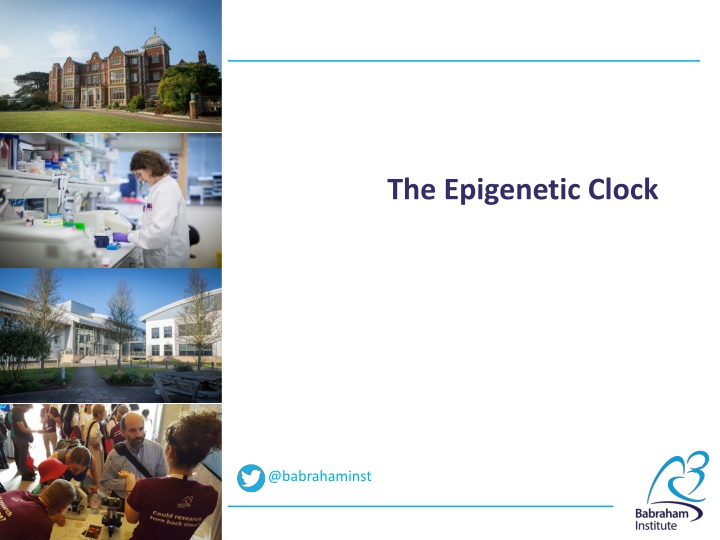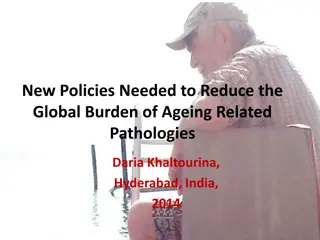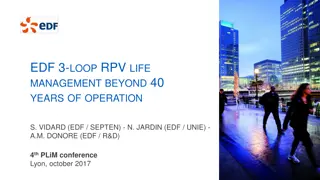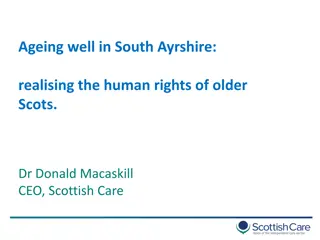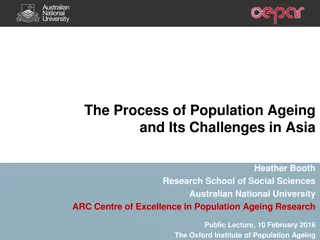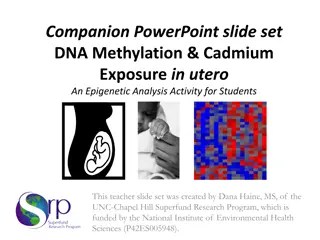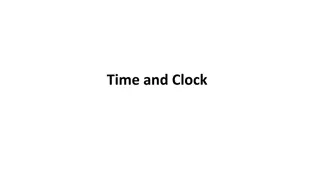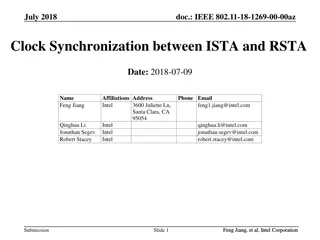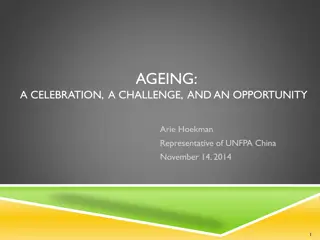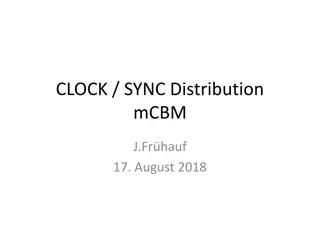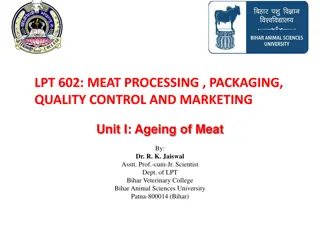The Epigenetic Clock and Ageing Factors
Explore the Epigenetic Clock model used to estimate biological age in mice by analyzing DNA methylation changes. Learn about the difference between chronological and biological age, the influence of epigenetics on ageing, and how lifestyle factors like diet, fat content, caloric intake, and growth hormone response impact the ageing process in mice.
Download Presentation

Please find below an Image/Link to download the presentation.
The content on the website is provided AS IS for your information and personal use only. It may not be sold, licensed, or shared on other websites without obtaining consent from the author.If you encounter any issues during the download, it is possible that the publisher has removed the file from their server.
You are allowed to download the files provided on this website for personal or commercial use, subject to the condition that they are used lawfully. All files are the property of their respective owners.
The content on the website is provided AS IS for your information and personal use only. It may not be sold, licensed, or shared on other websites without obtaining consent from the author.
E N D
Presentation Transcript
The Epigenetic Clock @babrahaminst
Learning Outcomes Explain the differences between biological and chronological age. All students will: Describe how lifestyle factors can influence the ageing speed differently. Most students will: Explain how epigenetics is linked to biological age Some students will: Key word/s Epigenetics, ageing, healthy ageing, life style
Epigenetics DNA is the same in each cell, but they all work differently epigenetics Epigenetic marks switch genes on and off to control cell function Chemical marks include DNA methylation through the addition of a methyl (CH3) molecule
Chronological Age vs Biological Age We all have two different ages Chronological Age Biological Age Time Since Birth Ticks away with the course of time and is based on the day you were born Wear & Tear Measures the extent of wear and tear in your body as you age.
The Epigenetic Clock The Epigenetic Clock is a computer model that estimates a mouse s biological age It looks at changes in DNA methylation at 329 specific places, out of a possible 23 million, where DNA methylation changes can occur The Epigenetic Clock allows researchers to test the effect of lifestyle factors on ageing in mice
What can influence ageing in mice? DIET FAT CONTENT CALORIE INTAKE RESPONSE TO GROWTH HORMONE
Choose your mouse DIET FAT CONTENT CALORIE INTAKE RESPONSE TO GROWTH HORMONE
Answers Mouse 1 Mouse 2 Blue card 6.5 months 6 months Orange card 6 months 3 months Purple card 6 months 4 months
Recap What is the difference between chronological and biological age? What is the relation between epigenetics and biological age? How do diet fat content , caloric intake and response to growth hormone influence the ageing speed?
More information on the Epigenetic Clock The Reik group at the Babraham Institute discovered the Epigenetic clock in mice and developed the model. More information can be found here: https://www.babraham.ac.uk/our- research/epigenetics/wolf-reik
